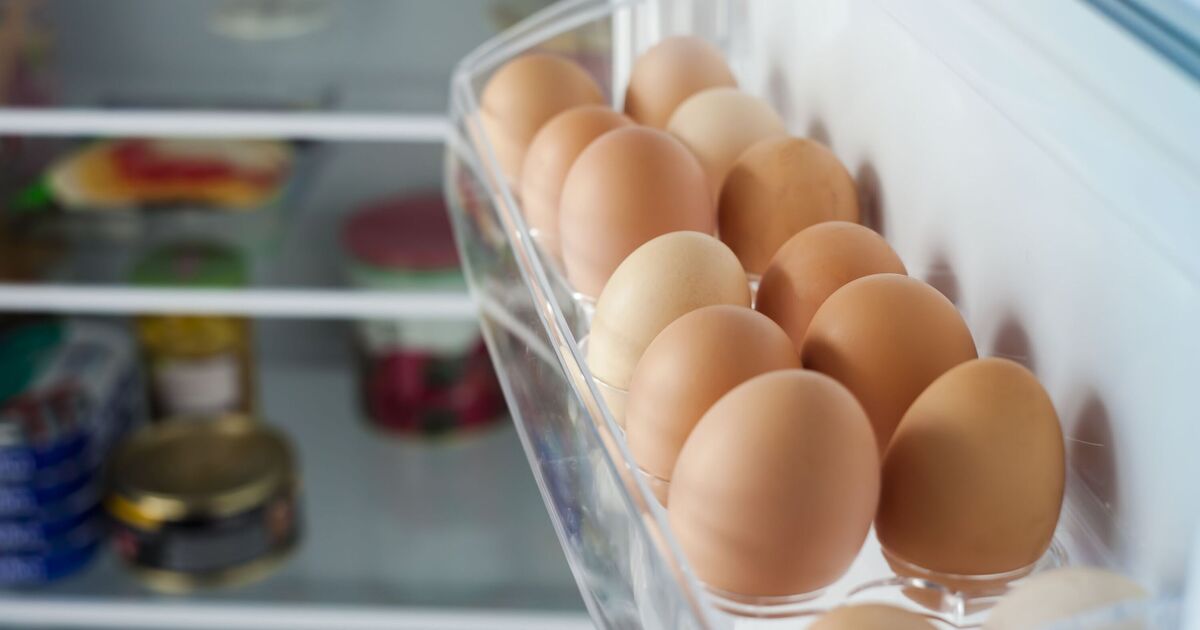Most refrigerators come with handy storage sections in the door, but UK households are being warned not to use these compartments for eggs.
Despite being kept at room temperature in supermarkets, it is recommended that eggs be stored in the fridge when you get them home to keep them fresher for longer.
It’s advised that eggs be stored in their original carton on a shelf in the fridge, but never in the designated compartments on the door.
According to storage experts, keeping your eggs in the door of the fridge can cut their shelf life short and increase the risk of contamination.
This is because temperature fluctuations occur in this spot every time the fridge door is opened and closed, allowing bacteria to thrive. But food stored on a shelf, by comparison, is subject to a more consistent temperature.
Adam Oakley, storage expert at Door to Store, warns: “The fridge door experiences constant temperature fluctuations due to regular opening and closing.
“This unstable environment creates conditions where bacteria can thrive and can weaken the egg’s natural protective barrier, speeding up spoilage.”
As well as frequent temperature changes, the movement of the fridge door opening and closing can also cause eggs to shake slightly, which can reduce their quality over time.
Experts say the ideal place to keep eggs is in the deeper, middle sections of the fridge where there is a consistent temperature – typically below 20C – which is crucial for preserving freshness.
When stored correctly, eggs can stay fresh for up to five weeks in the fridge, compared to just a few days if kept at room temperature.
They should always be stored in their original carton to keep them fresher for longer as it provides a protective barrier, otherwise the porous eggshells can absorb odours from the fridge.
Eggs should be placed with the pointed end down to help maintain the yolk’s central position and preserve freshness, and they shouldn’t be washed before storing as this removes their natural coating making them more susceptible to bacteria.
Mr Oakley adds: “Eggs stored at room temperature start losing quality within a few days, especially in warmer climates.
“While eggs kept outside the fridge should ideally be used within one to three weeks, refrigerated eggs can last up to three to five weeks with their freshness intact.
“While refrigeration significantly extends shelf life, it’s always best to consume eggs within a few weeks to ensure optimal taste and quality.”












